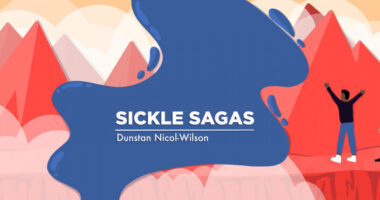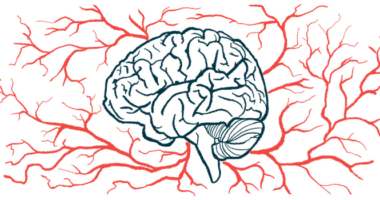Altemia Shows Promising Results in Phase 2 Trial for SCD Children

Sancilio Pharmaceuticals‘ investigational oral compound Altemia (SC411) shows promising results in treating children with sickle cell disease (SCD), a Phase 2 clinical trial reveals.
The study, “Double-blind, randomized, multicenter phase 2 study of SC411 in children with sickle cell disease (SCOT trial),” was published in Blood Advances.
In SCD, the membranes from red blood cells lack a fat molecule called docosahexaenoic acid (DHA), that has important antioxidant, anti-inflammatory, anti-adhesion (prevents red blood cells from sticking to the blood vessel walls) and anti-aggregation (prevents red blood cells from sticking to each other) functions, all of which offer potential clinical benefits for patients with SCD.
Altemia is an investigational oral compound that contains a novel DHA chemical formulation developed by Sancilio’s delivery platform, Advanced Lipid Technology, which works by enhancing DHA bioavailability. That is to say, it increases the amount of DHA to replenish the portion that was destroyed in the course of the disease.
The Phase 2, randomized, double-blind, placebo-controlled, parallel-group SCOT trial (NCT02973360) evaluated the clinical safety and tolerability of three doses of Altemia in children with SCD compared to a placebo group.
The trial enrolled 67 children with SCD between five and 17 years old, who were assigned randomly to receive either Altemia at a daily dose of 20 mg/kg, 36 mg/kg, or 60 mg/kg, or a placebo, for a period of eight weeks.
After four weeks of treatment, all three groups receiving Altemia or the placebo treatment had a significant increase in the amount of DHA and eicosapentaenoic acid (EPA), another fatty molecule, present at the red blood cell’s membrane in comparison with baseline levels (109% for 20 mg/kg, 163.8% for 36 mg/kg and 170.8% for 60 mg/kg, and 28.6% for placebo).
After eight weeks of treatment, investigators observed a significant increase in the levels of hemoglobin in children receiving 20 mg/kg of Altemia compared to the placebo.
” … the observed therapeutic effects of DHA in patients with SCD could partially be attributable to its possible effects on cell membrane structure and function. Moreover, the potential antioxidant activity of DHA may also play a role in improving cell membrane integrity and functionality,” the authors explained.
Altemia treatment also reduced significantly the frequency of sickle cell crisis (SCC), disease-related pain and, consequently, the amount of analgesics used at home and the number of days children had to be absent from school.
All medication doses were safe and well-tolerated by children. Only two adverse side effects — abdominal pain and nausea experienced by one of the participants — was attributed to Altemia treatment.
“SC411 was well-tolerated, as indicated by high retention rate, adherence to study medication, and high percentage of subjects opting to participate on the OLE [open-label extension] part of the study,” the authors added.
Altogether, these findings suggest that Altemia is a promising therapeutic avenue for patients with SCD and warrants further investigation in more clinical trials.
“In conclusion, the results from this 8-week study of multiple doses of a highly purified DHA in children with SCD, many of whom were still symptomatic despite receiving concomitant HU [hydroxyurea] treatment, supports the progression to a larger phase 3 trial of SC411 in children with SCD,” the authors wrote.






